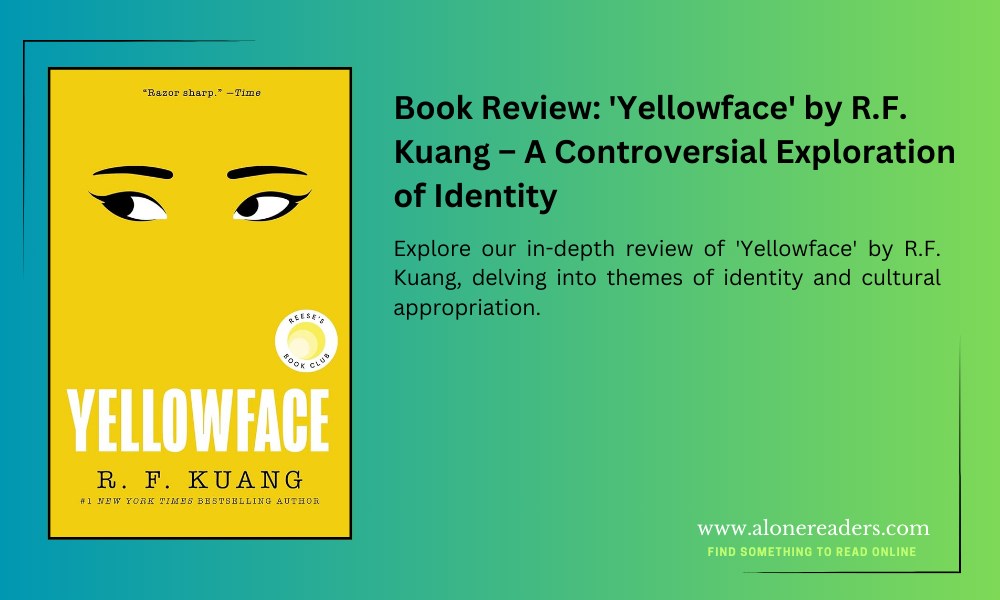
"Yellowface" by R.F. Kuang is a novel that boldly navigates the treacherous waters of cultural identity and appropriation, sparking both critical acclaim and spirited debates. Kuang, known for her sharp societal insights and complex narratives, once again challenges her readers with a provocative storyline that examines the literary world through a lens of racial identity and ethical dilemmas.
The novel follows the story of Athena Liu, a struggling white writer who, in a desperate bid for success, assumes the identity of a deceased Asian-American author, Athena Liu. This controversial act of literary and racial impersonation propels her to unexpected heights in her career but also plunges her into a complex web of deception and guilt. The crux of the novel lies in Athena's navigation of her new life, grappling with the acclaim she receives for works she's penned under an assumed identity and the moral reckoning that follows.
Kuang's portrayal of Athena is both nuanced and critical, effectively using her protagonist's journey as a mirror to reflect broader societal issues concerning race and authorship. The narrative is sharp, interlaced with biting commentary on the commodification of minority voices in the literary industry and the often invisible barriers that writers of color face. Kuang does not shy away from depicting the ugly truths of the publishing world, including the exploitation of racial identity for commercial gain.
The strength of "Yellowface" lies in its ability to provoke thought and dialogue. Kuang raises pertinent questions about who has the right to tell certain stories and the thin line between appreciation and appropriation. The narrative is punctuated with instances where characters confront their biases and the implications of their actions, making readers question their perceptions and assumptions about cultural identity.
However, the novel is not without its criticisms. Some readers may find Athena's actions irredeemable, and the resolution might seem unsatisfying to those looking for a clear-cut condemnation or redemption of her choices. Furthermore, the secondary characters can sometimes feel underdeveloped, serving more as vehicles for the thematic exploration rather than fully realized individuals.
Kuang's prose is crisp and engaging, maintaining a balance between eloquent descriptions and brisk, impactful dialogue. Her ability to weave complex themes into a compelling narrative without sacrificing pace or readability is commendable. The settings, from bustling cityscapes to the quiet, introspective spaces of Athena's private moments, are vividly rendered, adding a rich backdrop to the unfolding drama.
"Yellowface" will resonate with readers interested in contemporary issues of race, identity, and ethics in the creative arts. It serves as a catalyst for reflection on the responsibilities of writers and the impact of cultural heritage on personal and professional realms. The book is a significant contribution to discussions about diversity and representation in literature, reflecting Kuang's position as an important voice in modern fiction.
In conclusion, "Yellowface" by R.F. Kuang is a compelling, if controversial, exploration of identity and appropriation within the literary world. It is a book that demands reflection and challenges its readers to consider the implications of cultural identity in creative expression. Whether one views Athena's journey as a cautionary tale or a mirror to society's ongoing struggles with race and representation, Kuang's work undeniably adds valuable discourse to the conversation around diversity in literature.